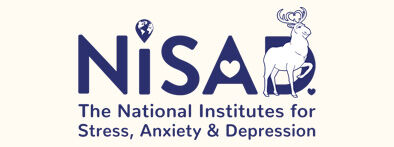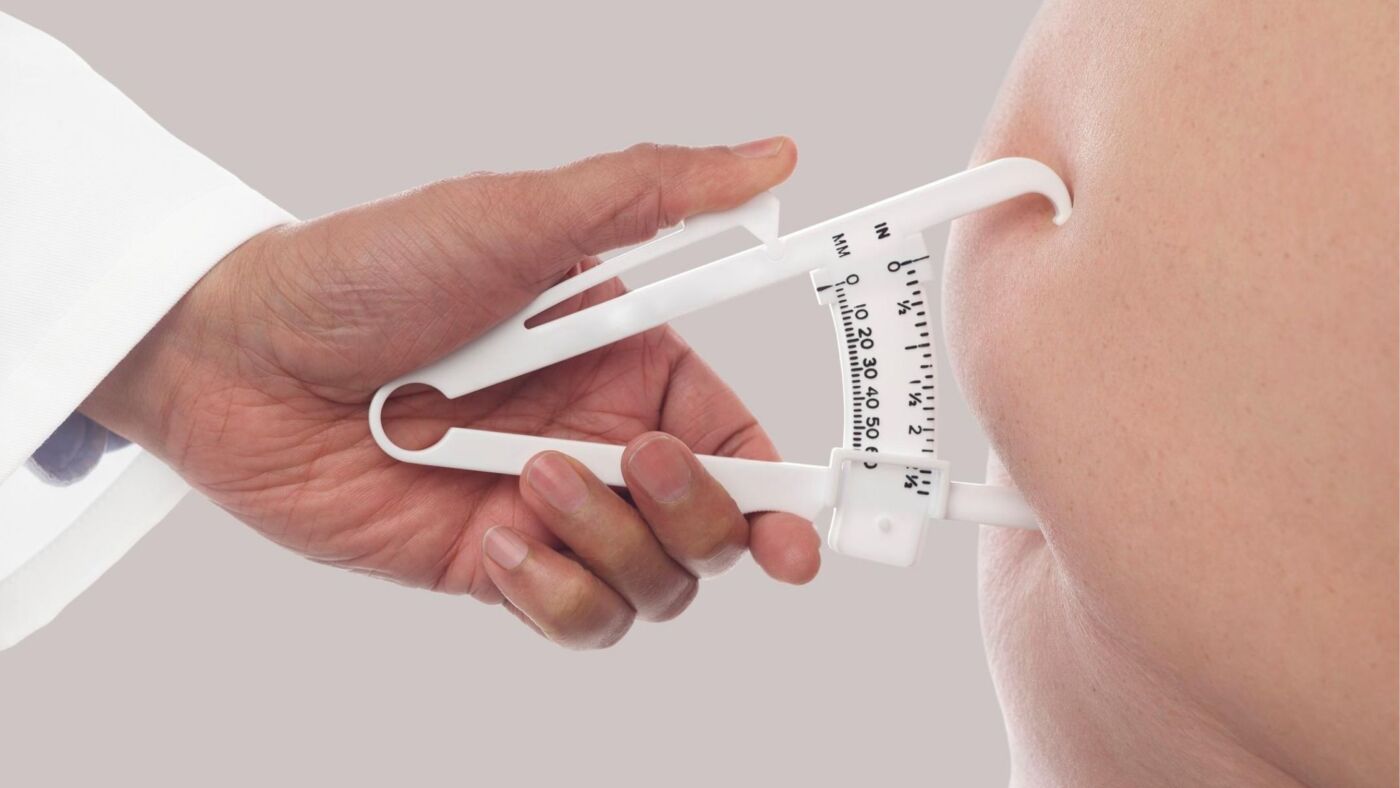We’ve all heard that simple solution to having too much body fat: eat less, move more.
It sounds beautifully simple. Then why, for so many of us, is it so hard?
Well, as much as we like simple solutions, we humans are beautifully complex. Solely looking at the actions we need to take (such as eat less, move more), doesn’t take into account the reasons we’ve not been doing those actions in the first place.
We all know what it is we need to do, it’s the how with which we struggle.
So, if we want to reduce body fat, we might begin by looking at the reasons why we overeat.
These reasons will vary from person to person. Yet there is one culprit, detrimental to our healthiness, which may also be complicit in our expanding waistlines: excess-stress.
Pair excess-stress with the abundance of food we have in our modern lives, and we have a recipe for increased body fat.
The exact recipe is somewhat complex but we can break it down into 8 easy-to-digest ingredients that show us how excess-stress may contribute to excess body fat.
What is excess-stress?
Before we dive in, let’s first take a look at what we mean by excess-stress.
Stress is a natural and vital part of our lives. It motivates us, engages us, energises us and gives us the push we need to get through challenges.
Our bodies are designed to cope with stressful experiences; they are also designed to rest and recuperate afterwards.
If stress is overwhelming – so that we feel we cannot cope – or if it’s frequently repeated or ongoing (so we’re unable to rest and recover), this is when stress becomes excess-stress.
And it’s when stress is excessive that it can influence behavioural and biological changes that may lead to gains in body fat.
Many circumstances can lend themselves to our experiencing excess-stress.
These include:
- Job demands: high workload or roles with high demand but low control;
- Lack of emotional support;
- Long periods of unemployment;
- Marital or relationship difficulties;
- Psychosocial factors that can include low socio-economic status, race-related discrimination, how we feel we compare to others, or how we feel we are accepted or respected by others;
- Social isolation.
Importantly, we are all different in how we respond to things so the circumstances themselves don’t mean we are experiencing excess-stress; it’s how we think and feel about our situation that influences how much stress we are experiencing.
So, now we know what kind of stress we’re talking about, let’s look at the reasons why excess-stress may contribute to excess body fat.
1. Increased appetite
Complex as always: stress and anxiety can suppress appetite, but they can also increase it.
Many of us will be familiar with the stress-munchies: where stress makes us feel hungrier and we want to eat more.
Research is ongoing but early studies suggest that ghrelin – the hormone that is released when our bodies need energy and nutrients, and makes us feel hungry – also plays a role in reducing anxiety. It is thought that this response during stressful conditions encourages us to seek food in order to maintain our body’s energy balance, and the feeling of reward (from food) helps to alleviate anxiety.
2. Faster feeding
When we are stressed, we tend to eat more quickly. By eating too quickly,
(a) we don’t allow time for our body to register feelings of nutritional fullness and
(b) we are not fully present to enjoy the psychological satisfaction that we get from eating. Either of these factors can leave us wanting more.
3. Carb cravings and fat fixations
Various studies have shown that stress-driven eaters tend to consume foods that are higher in carbohydrates and saturated fat. Along with increasing appetite, as excess-stress activates our body’s natural reward motivation pathways and reduces our ‘dietary restraint’, it can also make us favour ‘highly palatable’ foods, which tend to be high in fat and carbohydrates.
This may be both because of an evolutionary mechanism, which means we seek quick-and-high energy foods, as well as….
4. Comfort-eating
The habit of comfort-eating can come from a learned desire for foods that we associate with comfort.
We probably all have some childhood experiences of food being used to soothe – whether we remember them or not.
It can also be a displacement activity: where we turn to food (or the action of eating) to distract ourselves from feelings, such as anger, frustration or irritability.
5. The alcohol effect
Studies also indicate that stress-driven eaters tend to consume more alcohol. Additional calories aside, alcohol can both influence our food choices (towards more ‘highly palatable’ foods) and increase our appetite – whether at the time of drinking or afterwards.
6. Metabolic and brain changes
The full picture is quite complex but it’s been found that high and repeated stress can create structural and functional changes in the brain that regulate food reward and craving, meaning we become biologically disposed to eating more. This is then compounded over time as excess body fat, over-consumption of ‘highly palatable’ foods and high levels of stress can result in unhelpful changes to glucose metabolism, insulin sensitivity and appetite-regulating hormones.
In a vicious cycle, increases in body-fat are associated with changes to our stress response that promote further increases in body-fat
7. “Stress belly”
Where we store our body-fat also has implications for our health and our body shape.
Excess-stress has been associated with increased abdominal fat. This is because cortisol (one of the hormones released as part of the stress response) causes fat to be stored centrally around the middle. The evolutionary reason for this isn’t clear though it may be a way of storing easy access to energy – useful (and temporary) if we have to walk miles to find food, or make our way through a region rife with sabre-toothed cats where we could need to battle for our lives at any moment; not so helpful if we’re sat at a desk all day.
8. Night-time stress
Our bodies have a circadian rhythm where we are naturally programmed, by the rise and fall of certain hormones, to do things repeatedly – like go to sleep and wake up – in a 24-hour cycle.
As part of this cycle, glucocorticoid hormones (in particular cortisol) typically peak in the early morning (prompting us to wake up) and fall to their lowest in the small hours of the night.
Glucocorticoids are also produced when we are experiencing stress.
A 2018 study found that by disrupting this natural cycle with glucocorticoids during the 12 hour ‘darkness’ phase (7pm to 7am) meant that more fat cells developed. The study concluded that experiencing chronic, continuous stress at night could lead to significant weight gain.
All in all, it’s quite an eye-opener to realise just how many ways stress can affect our body shape and size.
If you’d like some tips on how to reduce excess-stress, take a look at 6 steps to reducing excess stress. Do be patient and kind with yourself as you experiment with making any changes. You could start by asking yourself, what one small change could I make? Then gently build on your changes bit by bit, and follow us for more ideas, insights and resources so we can support you.
Sources
1. Alfonso Abizaid. Stress and obesity: The ghrelin connection. Journal of Neuroendocrinology
31(7) (2019). https://doi.org/10.1111/jne.12693.
https://onlinelibrary.wiley.com/doi/abs/10.1111/jne.12693
2. Anne Jääskeläinen, Nina Nevanperä, Jouko Remes, Fanni Rahkonen, Marjo-Riitta Järvelin, Jaana
Laitinen. Stress-related eating, obesity and associated behavioural traits in adolescents: a
prospective population-based cohort study. BMC Public Health 14, 321 (2014).
https://doi.org/10.1186/1471-2458-14-321.
https://pubmed.ncbi.nlm.nih.gov/24708823/
3. Cliff Roberts, Nicholas Troop, Frances Connan, Janet Treasure, Iain Campbell. The effects of
stress on body weight: biological and psychological predictors of change in BMI. Obesity
15(12) (2012). https://doi.org/10.1038/oby.2007.363
https://onlinelibrary.wiley.com/doi/full/10.1038/oby.2007.363
4. Clifford J. Roberts, Iain C. Campbell, Nick Troop. Increases in weight during chronic stress are
partially associated with a switch in food choice towards increased carbohydrate and saturated fat intake. European Eating Disorders Review 22(1), 77-82 (2014).
https://doi.org/10.1002/erv.2264
https://pubmed.ncbi.nlm.nih.gov/24123563/
5. Elsevier. “Low ghrelin: Reducing appetite at the cost of increased stress?.” ScienceDaily, 13
September 2012. Retrieved14 July 2020.
https://www.sciencedaily.com/releases/2012/09/120913084637.htm
6. Gerri Piazza. “Disrupting normal hormone cycle spurs fat cells.” NIH Research Matters, 17 April
2018. Retrieved 14 July 2020.
https://www.nih.gov/news-events/nih-research-matters/disrupting-normal-hormone-cycle-spurs-fat-cells
7. Hui-JieHuang. Xiao-CangZhu. Qiu-QinHan. Ya-LinWang. NaYue. JingWang. RuiYu. BingLi. Gen-
ChengWu. QiongLiu. JinYu. Ghrelin alleviates anxiety- and depression-like behaviors induced by chronic unpredictable mild stress in rodents. Brain Behavioural Research 326, 33-43 (2017).
https://doi.org/10.1016/j.bbr.2017.02.040
https://www.sciencedirect.com/science/article/pii/S0166432816309214
8. Jaana Laitinen, Ellen Ek, Ulla Sovio. Stress-related eating and drinking behavior and body mass index and predictors of this behavior. Preventive Medicine 34(1), 29-39 (2002).
https://doi.org/10.1006/pmed.2001.0948
https://pubmed.ncbi.nlm.nih.gov/11749094/
9. Jessica L Harding, Kathryn Backholer, Emily D Williams, Anna Peeters, Adrian J Cameron, Matthew
Jl Hare, Jonathan E Shaw, Dianna J Magliano. Psychosocial stress is positively associated with
body mass index gain over 5 years: evidence from the longitudinal ausdiab study. Obesity
22(1), 277-86 (2014). https://doi.org/10.1002/oby.20423
https://onlinelibrary.wiley.com/doi/full/10.1002/oby.20423
10. Naoko Nishitani, Hisataka Sakakibara, Izumi Akiyama. Eating behavior related to obesity and job
stress in male Japanese workers. Nutrition 25(1), 45-50 (2009),
https://doi.org/10.1016/j.nut.2008.07.008
https://pubmed.ncbi.nlm.nih.gov/18834723/
11. Rajita Sinha, Ania M. Jastreboff. Stress as a common risk factor for obesity and addiction.
Biological Psychiatry 73(9), 827-835 (2013). https://doi.org/10.1016/j.biopsych.2013.01.032
https://www.ncbi.nlm.nih.gov/pmc/articles/PMC3658316/
12. T.M. Spruill. Chronic psychosocial stress and hypertension. Current Hypertension Reports 12(1), 10–16 (2010). https://doi.org/10.1007/s11906-009-0084-8
https://www.ncbi.nlm.nih.gov/pmc/articles/PMC3694268/
13. Yale University. “Stress may cause excess abdominal fat in otherwise slender women, study conducted at Yale shows.” ScienceDaily, 23 November 2000. Retrieved 14 July 2020.
https://www.sciencedaily.com/releases/2000/11/001120072314.htm

Alison Easton
BA(Hons) HPD DipCHyp
Alison is NISAD’s Director of Clinical and Creative Development. She will draw on her long experience as a clinician to provide support in our new ELK.Health online clinics and is a substantial, and much valued, contributor to the creation and development of ELK.Health’s #CertainAboutUncertainty, CalmBaby, NoWeigh and Type2.Club programmes.


